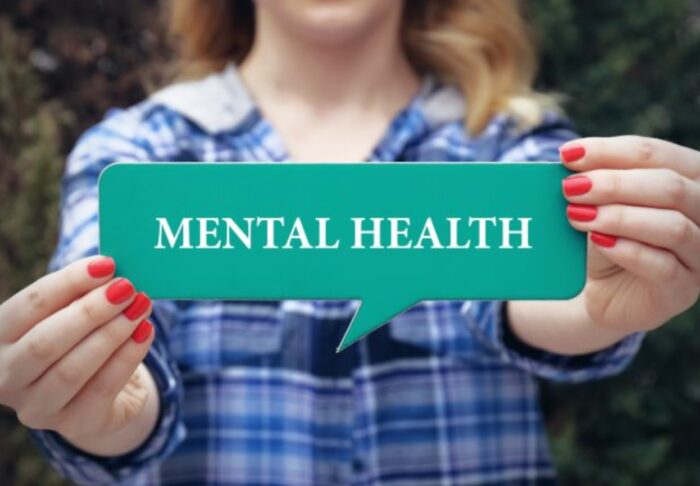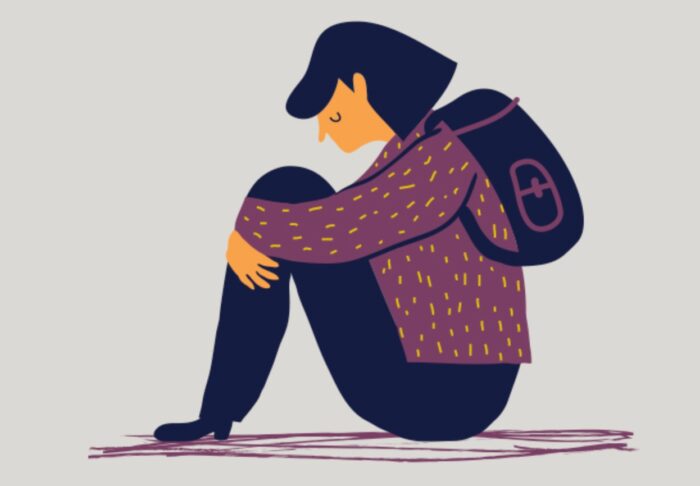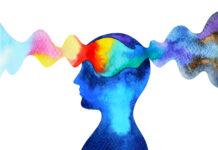
The younger population is the most productive and energetic generation of any nation. They have much to offer and are filled with ideas and aspirations on the cusp of beginning their adult lives. Moreover, their hearts are full of hope, making them enthusiastic about the fields and crafts they choose to explore. However, alarmingly, today’s younger generation seems to be under a lot of stress and pressure as they deal with the daily stresses of life.
They are uniquely vulnerable to mental health problems, especially since this period is not always ideal. The reason is that they experience many physical, emotional, and social changes and often don’t know the best way to cope.
Across the lifespan of a human being, most mental health problems first emerge in adolescence, from puberty to early adulthood. However, other major mental disorders that start earlier in life are behavioral and anxiety disorders.
Statistics show that approximately 20% of adolescents experience mental health disorders annually. The same research shows that 75% of mental health issues occur before the age of 24, while 50% happen before the age of 14.
There are many ways in which mental health disorders affect the younger population’s daily lives. However, before diving into that, here are some mental health problems that the younger population is likely to encounter:
Common Mental Health Disorders
Mental health is the functioning behavior and processing of an individual. Mental disorders impede the normal functioning of human beings. Some of the common mental health problems rampant among the young population include the following:
- Bipolar disorder
- Schizophrenia
- Anxiety
- Depression
- Post-traumatic stress disorder (PTSD)
- Paranoia
- Obsessive-compulsive behavior
- Dissociation disorders
- Psychosis
- Personality disorder
- Eating disorders
These mental health problems have several effects, as discussed below:
Impact of Mental Health Disorder On The Population
Mental disorders have several effects on the younger generation’s day-to-day life. They include the following:

1. Social Isolation
Strange as it may sound, in today’s world of endless creativity, the young generation battling mental health disorders like anxiety will likely face a deep vacuum in their social life. On the other hand, they may be super connected through social media platforms like WhatsApp, Instagram, Snapchat, Facebook, and other avenues, but they struggle to form and maintain real, meaningful relationships outside the internet.
In this scramble of the fear of missing out (FOMO), they find themselves in a situation where they feel alone despite all the social media noise and chaos. Social isolation and loneliness can worsen the mental disorder and cause other health problems like the following:
- Cognitive decline depression
- Heart disease
- Obesity
- High blood pressure
- Brain fog
Social isolation has many other effects, like increasing the risk of suicide and alcohol and substance use. To deal with this problem, you can click this website https://jacksonhousecares.com/ or any other similar site to find professionals to walk you through and out of the problem.
2. Memory Issues And Concentration
When battling anxiety and depression as a young individual, you’ll likely lose focus and experience short-term memory. You may find it challenging to do the following:
- Hold conversations with your friends
- Remember details like phone numbers
- Recall what you’ve been studying at school
In short, you may forget the minor details and experience confusion. Also, you may struggle to concentrate since chances are high that you’re in your world.
If you’ve started exhibiting any of these symptoms, you need to know that there are different levels. There’s a mild level, a more moderate one, and then the severe level, which affects every aspect of your life.
Since you may not know your level, you can consult a healthcare professional who’ll give you the correct diagnosis and a proper treatment plan.

3. Burnout
Shocking as it may seem, most youth in the internet generation have tried almost everything. This includes the following:
- Multiple romantic relationships
- Sexual experimentation
- Alcohol and substance abuse
So, by the time most of them transition to adulthood, they have nothing new to look forward to. Nothing makes them curious about the next stage because they’ve done most things. All they experience is an immense sense of tiredness, exhaustion, drained energy, and stress. This, plus the mental health disorder they may be going through, adversely affects aspects of their life like school, work, and social life.
Burnout also makes you highly susceptible to illnesses like the flu. Other symptoms to show you’re experiencing burnout include the following:
- You feel like all days are bad days
- Feeling like nothing in life makes sense
- Loss of motivation
- Constantly feeling like you shouldn’t care about your home or loved ones because it’s a waste of energy and time
- Detachment, feeling down and all alone
- Low sense of accomplishment and satisfaction
When you have burnout, you may eventually feel like you don’t matter and no longer have anything to give, prompting you to make unwise decisions like suicide.

4. Adverse Family And Friends Relationships
The younger population with mental health disorders has trouble associating or getting along with their friends and loved ones. Often, they feel like no one understands them hence blaming their siblings or parents for the discord and family disruption. Ideally, mental health disorders have a ripple effect on families, which creates the following:
- Stress
- Tension
- Uncertainty
And if the parental relationship experiences a challenge due to such a circumstance thus, there’s a high likelihood that it can cause marital conflict. Over time, the victim will also disagree with the relatives, dissociating the family from potential support sources.
These individuals also have trouble maintaining healthy relationships with their friends; hence they get into constant fights and arguments. Unfortunately, both relationships become strained because the involved parties don’t know the correct way to handle the victim with the mental disorder.
Acknowledging these adverse effects and the relative negative emotions of sadness, fear, and guilt is the first step toward finding help.

5. Low Performance
As earlier highlighted, mental health disorders affect memory and concentration. Victims of the younger generation suffering from this illness struggle to deliver quality work, causing their performance to deteriorate in their jobs.
It still applies to those who are still in school. They perform poorly and get lower grades because mental health problems cause, apart from poor concentration, the following:
- Mental disability
- Low student energy level
- Pessimism
Because there’s a high probability of students suffering from mental disorders in schools, the school management needs to set up a guidance and counseling department to help such scholars.

6. Career Challenges
Most young people usually have just embarked upon their work life or are about to do so. All is well if they have made an informed career decision and enjoy what they’re doing. They can easily manage their mental health problem. However, if they start working and realize that they made a wrong decision and don’t cherish their work, that’s when problems start.
They often realize what they thought they’d be doing, and the reality is entirely different. And with mental health disorders, you may find them not enjoying the following:
- Sticking to a particular schedule
- Their paycheck
- Atmosphere
- The company of their colleagues
The thought that it’s time to grow up and that life isn’t as fun as they’d anticipated escalates the mental disorders due to increased stress and difficulties dealing with work-related issues.

7. Negative Romantic Relationships
Besides family relations and friendships, mental health problems can also affect the younger populations’ intimate or romantic relationships. Some of the ways through which it might affect your relationship include the following:
-
Feeling Guilty, Resentful, Or Shameful
Dealing with a mental disorder is not easy. There’s some stigma that comes with this condition that worsens the situation, causing stress to both you and your partner. This isolation causes you to experience shame, embarrassment, or guilt.
Unless your partner is supportive and creates an atmosphere where you can open up, it becomes difficult for both of you to meet each other’s emotional and psychological needs in the relationship.
Sometimes, your partner may provide that safe space for you, but they may constantly feel frustrated and confused due to their inability to offer adequate help. It can affect your relationship adversely, and you may start feeling distant toward each other.
Other behaviors that can put a strain on the relationship due to this condition include the following:
- Difficulty in handling chores and household tasks
- Isolation
- Emotional unavailability
- Struggle to maintain employment
Your partner may hence feel rejected, disappointed, and disconnected. And without professional intervention, chances are high that such a relationship may fail to work.
-
Struggle In Communication
When one party has a mental health disorder, this can adversely impact communication. People with this condition find it hard to express their feelings, making it difficult for their significant other to understand them.
When you have anxiety, you may express mistrust toward your partner. On the other hand, if it’s depression, you might project apathy consciously or unconsciously. If you have bipolar, your partner may find it challenging to understand you when you’re in a depressive episode since, at this time, you may be moody and unpredictable. These circumstances might cause misunderstandings, and both parties may start feeling isolated or lonely while in the relationship.
And since communication is one of the main ingredients of a healthy relationship, it may become difficult to have a beautiful relationship, forcing you to part ways ultimately.
If you don’t want to end your relationship, you need to seek help from professional therapists and counselors. Apart from treating the condition, they’ll also advise you on basic tactics for handling each other during this time, coping mechanisms, and the importance of effective communication.
-
Intimacy Issues
Another problem of a person with a mental disorder is that they may be disinterested in being sexually intimate with their partner. This may result from the mental illness or the treatment they’re going through, like an antidepressant which might decrease their libido.
Moreover, most people with mental health issues experience low self-esteem and inadequacy. Hence, they may shun physical intimacy with their partner, affecting the connection.
There are many other ways through which mental health disorders might affect the relationships of the younger population; however, with professional help, they can sustain healthy, loving, and long-term relationships.

8. Poor Management Of Finances
When you have a condition like depression, you might struggle to manage your finances. To elaborate further on this sub-topic, here are examples to show the effect of mental illness on finances:
- If you’re feeling depressed or low, you may not feel the need to manage your finances, hence developing lousy spending habits.
- You may not feel worthy of living or existing in the world; hence see no need to save or invest.
- Spending money on things you love might be a coping mechanism because it briefly makes you feel good about yourself; unfortunately, you end up overspending.
- In periods of hypomania or mania, you might make impulsive financial decisions.
- A negative self-image might deter you from exploring new opportunities that can give you a better income.
- The inability to work and low performance might adversely affect your income.
- You might stop tracking your balances on your account and completely shun budgeting.
- You may end up paying more on insurance.
- A lack of motivation may cause you to neglect your bills and responsibilities.
- You become highly susceptible to debt accumulation.
When having mental health disorders, most young people forfeit their financial goals and avoid thinking about money altogether. Hence, they make irrational financial decisions that add more problems to the existing issue.
Conclusion
Mental health is essential at any stage of life to help you cope with stressful situations, work productively and make meaningful contributions to your community. However, research shows several young people suffer from mental health disorders. The above effects are the most common challenges these individuals suffering from these illnesses experience today.
Don’t hesitate to express concern if you notice any young adult or adolescent going through any of the above problems. Ensure you encourage them to come forward and seek help. Remember, health isn’t a stigma nor a sign of weakness. It takes immense courage for someone to come forward and acknowledge that they need help!












